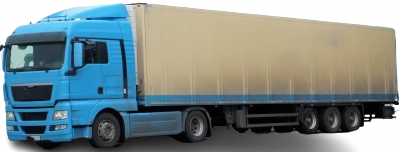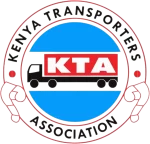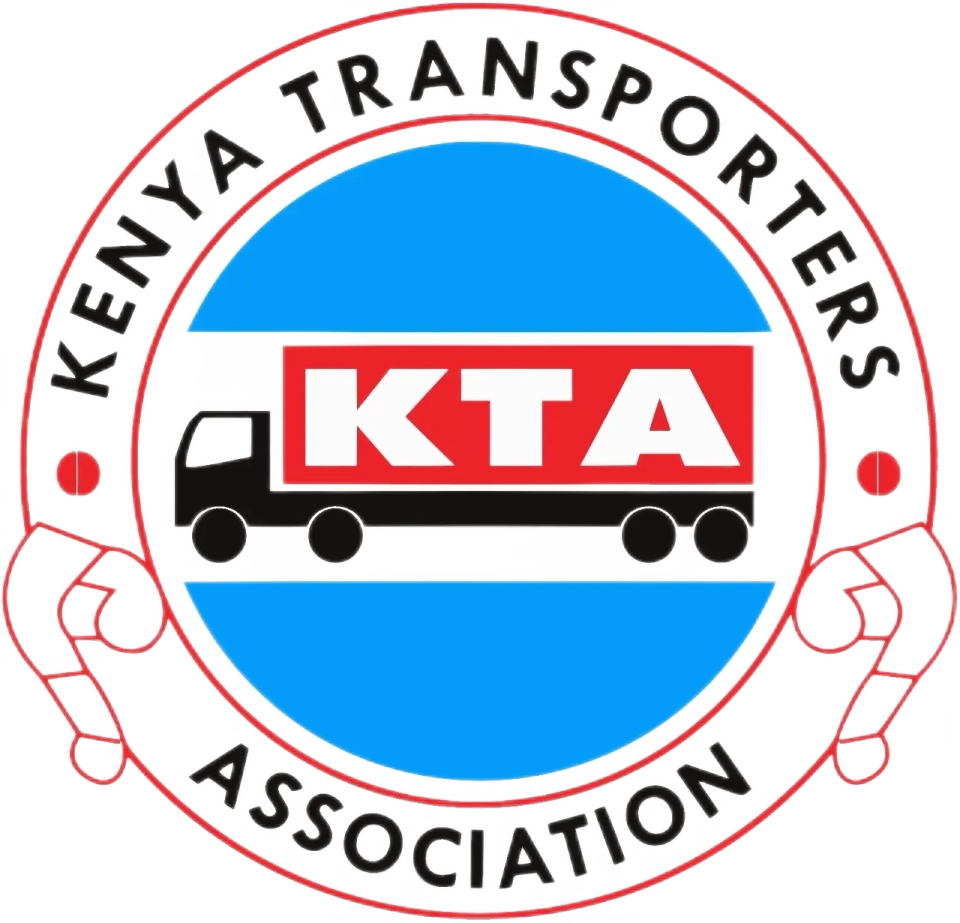KTA Membership
This form of membership is open to any company, association, corporate body, partnership or person engaged in the transport industry in Kenya whose application shall be approved by the board and subscribe to the objectives of the KTA.
Below are the requirements for membership: –
Documentation
- Copy of PIN certificate/Tax Compliance Certificate
- Copy of Certificate of Registration/Incorporation
- Letter of application seeking membership with KTA
- A signed copy of the Code of Conduct. (Download from Media)
- Download Membership form from the Media (Downloads)
Fees Payable/Applicable
- Entrance Fee: KES. 1,000 (One Time)
- Membership Fee: KES. 10,000 (Annual)
- Subscription Fee: KES. 2,000 per Truck (Annual)
- Membership certificate: KES 500
- KTA Stickers: KES 200 per sticker per truck
Associate membership is open organizations/firms with strategic business interest in the transport sector. Associate membership is available subject to approval by the KTA Board of Directors. Associate members must subscribe and fully adhere to the KTA Code of Conduct. Parts of the Code of Conduct touching on real transport issues are relative and not necessarily binding for associate membership. Documentations required are;
- Copy of PIN certificate/Tax Compliance Certificate
- Copy of Certificate of Registration/Incorporation
- Letter of application seeking membership with KTA
- A signed copy of the Code of Conduct
Fees Payable; 101,500 Per Year
As an Associate member you stand to gain by way of;
- Strategic branding: Increase your visibility in the transport sector. Position your company as a leader by highlighting your products, services, and expertise to transporters.
- Events and networking: Building strong business relationships to advance your company. Through KTA membership, you’ll be able to network with existing members and connect with new ones.
- Research and insights: Your firm will have access to a steady stream of relevant and up-to-date transport and related information to help you make better decisions and achieve your goals.
- Free adverts: Promote your business in in the KTA monthly newsletter and on KTA members WhatsApp group. It’s a great opportunity to reach a larger audience, connect with esteemed members, and increase brand exposure.
- Representation and Advocacy: KTA represents the needs and concerns of its members at local and regional levels, lobbying for policies that favor road transport. KTA actively engages the government and stakeholders to address challenges in the transport sector through policy formulation and review, ensuring the interests of its members are prioritized.
- Compliance: We help members comply with the latest freight transport regulations. Members receive up-to-date information, including industry research studies, government policies, weekly port and corridor performance reports, and access to exclusive content such as internal research documents.
- Awareness: KTA provides a platform for members to network, exchange ideas, and access beneficial business opportunities.
- Capacity Building: We encourage the adoption of internationally recognized industry standards through educational sessions at KTA events. Members gain access to valuable information, including industry statistics and research findings.
- Safety and Inclusivity: KTA promotes a safe, secure, gender-sensitive, and environmentally friendly trucking industry.
- Partnership and Networking: We offer networking opportunities across various industries. Members benefit from discounted services through our partnerships, fostering collaboration and innovation within the transport sector.
- Increased Visibility: KTA’s monthly newsletter and social media pages help members enhance their visibility and market opportunities. Members can position their companies as industry leaders by highlighting their products, services, and expertise.
- Standard Setting: KTA aims to make Kenyan trucking competitive in the region. Through regional meetings, we build and share best practices and requirements from other countries to boost the performance of members involved in cross-border logistics.
- Vehicle Load Control Self-Regulatory Charter (2014): KTA, in collaboration with other agencies, signed this charter, compelling our members to adhere to Axle Load Limits specified in The East Africa Community Vehicle Load Control Act, 2013. Compliance rates among members have reached an impressive 99%, significantly reducing penalties.
- Free COVID-19 Testing for Commercial Truck Drivers: While neighboring East African countries charged for COVID-19 testing, KTA successfully lobbied for free testing for commercial truck drivers in Kenya. This initiative prioritized driver health and safety during the pandemic.
- Zero-Rated VAT Status for Kenyan Exports: KTA joined forces with stakeholders to advocate for retaining zero-rated VAT status for transportation services related to Kenyan exports. This prevented an increase in transportation costs for locally made products.
- Streamlining Port Processes: KTA’s advocacy led to the removal of physical inspections for KTA member trucks before issuing port passes and granting entry to the port. This streamlined operations and reduced delays.
- Influencing Commercial Vehicle Regulations: KTA actively participated in reviewing the proposed Commercial Vehicle Regulations Act by the National Transport and Safety Authority (NTSA).
- Enhanced Visibility and Public Participation: KTA engaged with various government agencies during policy formulation, ensuring that transport-related policies consider the association’s perspective. The involvement has increased transparency and accountability. KTA is highly regarded by other stakeholders and government agencies, reinforcing our position as a key player in Kenya’s transport sector.
- Advocacy for Improved Roads and Weighbridge Conditions: KTA successfully advocated for better road infrastructure and weighbridge conditions, enhancing overall transport efficiency.
- Reducing Roadblocks: KTA’s persistent efforts led to the removal of unnecessary roadblocks on major highways. This has positively impacted the flow of goods and services across the country.
- Strategic Deployment of Secretariat Staff: To address members’ issues promptly, KTA deployed additional secretariat staff at critical locations, including the Port of Mombasa, Malaba, Busia, and Nairobi.
- Promoting Professional Standards: KTA members adhere to the association’s Code of Conduct, emphasizing professionalism and ethical practices within the transport industry.
- Halting Forceful Railage of Transit Cargo: KTA collaborated with industry stakeholders to prevent the forceful railage of transit cargo to Naivasha and South Sudan-bound cargo to Nairobi Freight Terminal.
- Challenging Forceful Railage of Local Cargo: KTA, alongside other stakeholders, instituted legal proceedings against the forceful railage of local cargo to Nairobi.
- Extended Validity of Authority Letters for Local Goods: KTA’s advocacy led to the extension of authority letter validity for carrying local goods on transit trucks. These letters are now granted for 12 months, aligning with the Transit Goods License duration.
- Height Tolerance for Shipping Containers: KTA’s lobbying efforts secured a temporary height tolerance for standard 40-feet high cube shipping containers on standard trucks (up to 4.5 meters). This facilitates smoother transportation.
- Weight Tolerance and Dual Weighing: KTA advocated for a 5% tolerance on axle load and variance of up to 200 kgs above permissible load on Kenya National Highways Weighbridges. Transit trucks are now weighed both at the start of the journey and the point of exit.




